Emomali Rahmon’s Water Diplomacy
Read also
There are countless issues on the international agenda, prompted by a variety of pressing human problems. Among the most important and clearly articulated issues of global scale, special attention is paid to the issues in the field of vision of the United Nations. One of these issues was the initiative taken 25 years ago, on October 1, 1999, by the Founder of Peace and National Unity — Leader of the Nation, President of the Republic of Tajikistan, H.E. Emomali Rahmon, when he proposed to declare 2003 the International Year of Fresh Water. A quarter of a century has passed since then, but the importance of water initiative has only grown; it has been supported by the world community and transformed into a global system of water partnerships.
On this notable occasion, under the guidance of the Minister of Foreign Affairs of the Republic of Tajikistan, Sirojiddin Muhriddin, the publishing house «All World» has released a collection of books dedicated to the implementation of the initiative, entitled «Emomali Rahmon’s Water Diplomacy: from the first step to global partnership».
This collection convincingly demonstrates not only the diversity and complexity of the problem of fresh water use by mankind, but also Tajikistan’s deep understanding of this global problem. Documents included in the book, such as UN General Assembly resolutions, reports of the UN Secretary General and numerous speeches of the President of Tajikistan Emomali Rahmon emphasize the significant and successful work done by the Government of Tajikistan. These materials vividly illustrate the history of the emergence and development of the Leader of the Nation’s “water diplomacy”, which has become a new phenomenon in international relations.
Thanks to the initiatives of H.E Emomali Rahmon, water has been at the top of the UN agenda for a quarter of a century, and water issues are becoming a unifying force in modern international relations.
The collection is not only supported by persuasive documents and speeches, but also contains a lot of informative material, which makes it much easier to understand. It can be useful for politicians and diplomats as well as for specialists in economics, ecology and water issues. It will also be of interest to teachers and students in higher education institutions studying water-related issues.











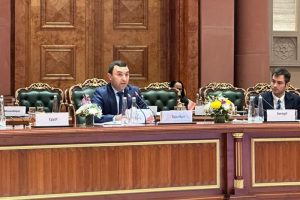 Tajikistan Promotes Digital Transformation Agenda at AI Impact Summit
Tajikistan Promotes Digital Transformation Agenda at AI Impact Summit Tajikistan Expands AI Cooperation with Google DeepMind
Tajikistan Expands AI Cooperation with Google DeepMind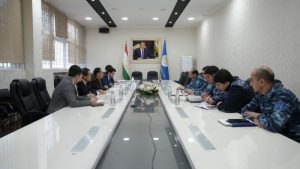 Tajik Customs, Japanese Firm Sign Deal on Cargo Scanning Upgrade Project
Tajik Customs, Japanese Firm Sign Deal on Cargo Scanning Upgrade Project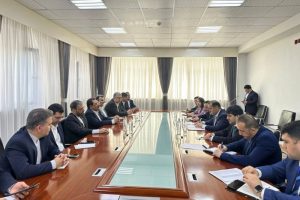 Tajikistan, Iran Discuss Boosting Direct Investment Cooperation
Tajikistan, Iran Discuss Boosting Direct Investment Cooperation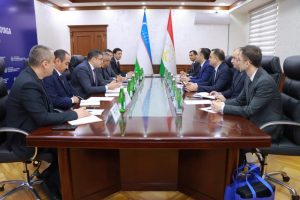 Tajik and Uzbek Anti-Corruption Agencies Discuss Expanding Cooperation
Tajik and Uzbek Anti-Corruption Agencies Discuss Expanding Cooperation Starlink Satellite Internet Launches in Tajikistan
Starlink Satellite Internet Launches in Tajikistan Austrian Company Andritz Hydro Seeks to Expand Cooperation with Tajikistan
Austrian Company Andritz Hydro Seeks to Expand Cooperation with Tajikistan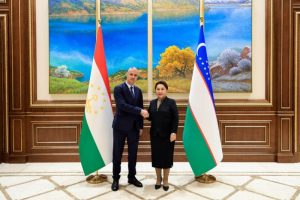 Ambassador of Tajikistan Meets with Chairperson of the Senate of Uzbekistan
Ambassador of Tajikistan Meets with Chairperson of the Senate of Uzbekistan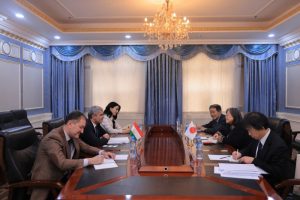 Tajikistan and Japan Discuss Cooperation within Regional and International Organizations
Tajikistan and Japan Discuss Cooperation within Regional and International Organizations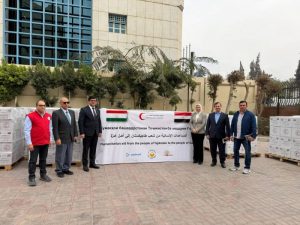 Tajikistan’s Humanitarian Aid to the People of Gaza
Tajikistan’s Humanitarian Aid to the People of Gaza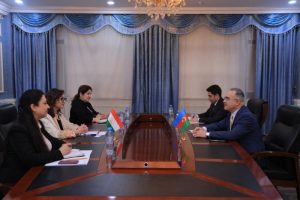 Bilateral Cooperation Between Tajikistan and Azerbaijan Discussed in Dushanbe
Bilateral Cooperation Between Tajikistan and Azerbaijan Discussed in Dushanbe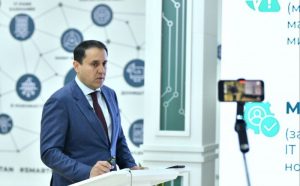 Tajikistan Establishes Data Protection Center to Strengthen Cybersecurity
Tajikistan Establishes Data Protection Center to Strengthen Cybersecurity














